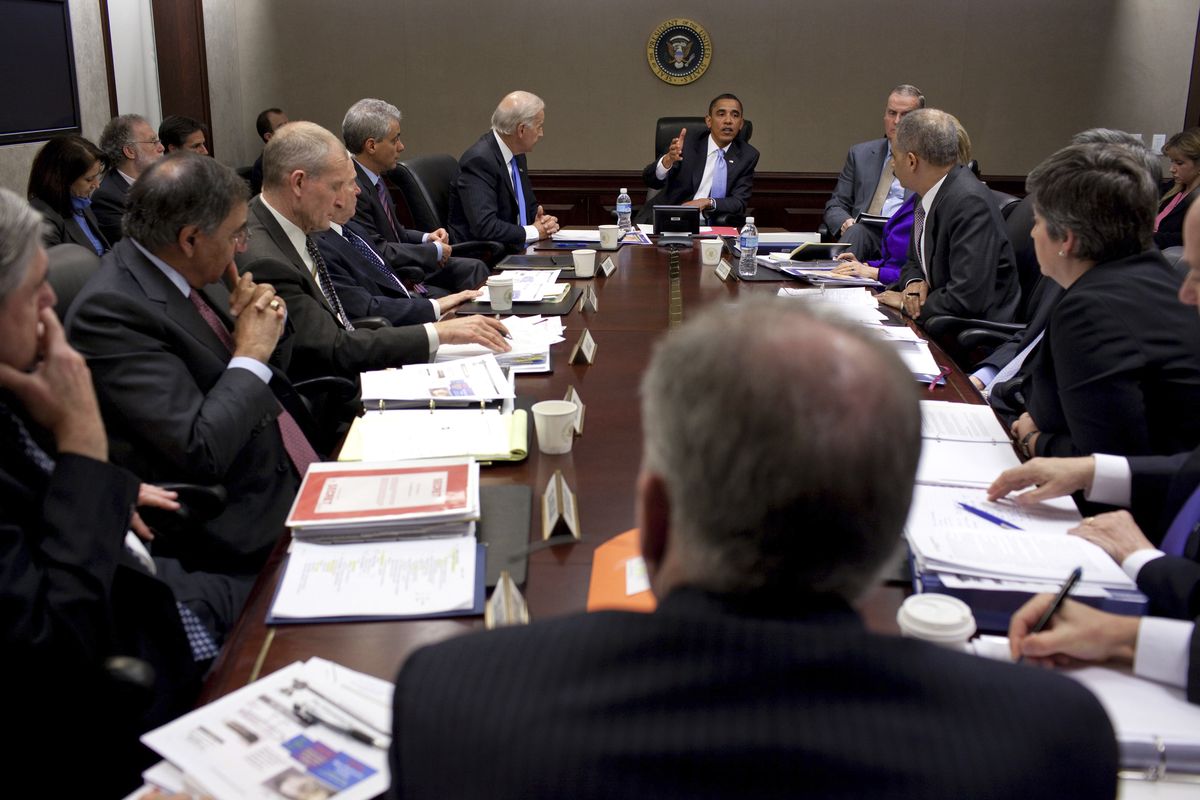Obama blisters security agencies
President promises rapid improvements

WASHINGTON – President Barack Obama scolded 20 of his highest-level officials on Tuesday over the botched Christmas Day terror attack on an airliner bound for Detroit, taking them jointly to task for “a screw-up that could have been disastrous” and should have been avoided.
After that 90-minute private reckoning around a table in the super-secure White House Situation Room, a grim-faced Obama informed Americans that the government had enough information to thwart the attack ahead of time but that the intelligence community, though trained to do so, did not “connect those dots.”
“That’s not acceptable, and I will not tolerate it,” he said, standing solo to address the issue publicly for the fifth time – and the first in Washington – since the Dec. 25 incident.
Afterward, the White House released quotes from the Situation Room session. Disclosing Obama’s words during a private meeting is normally strictly off-limits for this White House and most others before it. In this case, Obama advisers are eager to portray the president as aggressively on the job – even as he has little, or in this case nothing, new to announce about how to tackle the security lapses that allowed the airline plot almost to succeed.
Obama did not say who, if anyone, in the government might be held accountable. Earlier in the day, White House spokesman Robert Gibbs said the president still has full confidence in his three top national security officials: the director of national intelligence, Dennis Blair, CIA Director Leon Panetta and Homeland Security Secretary Janet Napolitano – all of whom were among those around the table with Obama later.
For now, administration officials say that Obama believes blame is shared enough that no one agency or official appears clearly enough at fault to be fired. However, as the president and his team continue to identify what the security gaps were and how to fill them, Obama could determine that someone needs to go, said one senior administration official familiar with Obama’s thinking. The official spoke anonymously because of the sensitivity of the matter.
Obama stressed urgency and speed in his public remarks. “We will do better, and we have to do it quickly. American lives are on the line,” he said.
A White House official said that Obama warned his lieutenants against looking for blame and that none of this sort of finger-pointing took place in the meeting, where the leaders of each agency took responsibility for failures within their respective organizations. “While there will be a tendency for finger-pointing, I will not tolerate it,” the official said Obama lectured them.
Umar Farouk Abdulmutallab, the Nigerian suspect who allegedly tried to set off an explosive device aboard the plane as it came in for a landing in Detroit, has told U.S. investigators he received training and instructions from al-Qaida operatives in Yemen. His father warned the U.S. Embassy in Nigeria that his son had drifted into extremism in the al-Qaida hotbed of Yemen, but that threat was never fully digested by the U.S. security apparatus.
He is accused to trying to ignite the explosives he brought on board the flight carrying nearly 300 people – thwarted only by a malfunction with the explosives and the quick action of fellow passengers and crew once his efforts resulted in a fire.
“We dodged a bullet but just barely,” Obama told his team. “It was averted by brave individuals, not because the system worked, and that is not acceptable.”
To Americans, Obama detailed even more red flags available in advance than had already been acknowledged: that an al-Qaida affiliate in the Arabian Peninsula planned to strike not only American targets in Yemen but the United States itself, and that it was working with Abdulmutallab to do so.
“The information was there,” Obama said, blistering agencies and analysts for not figuring out the threat – but without singling any out by name.
The director of national intelligence, Dennis Blair, said in a statement that the intelligence community had received the president’s message. “We got it, and we are moving forward to meet the new challenges,” Blair said.
Obama announced no new steps to improve the intelligence or security systems. But he promised they would be coming, signaling more changes for airport travelers and in the sharing of intelligence. And he made a point to recount every step his administration has taken since the Dec. 25 incident.